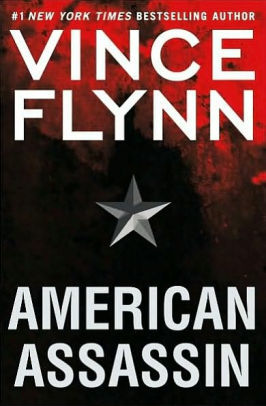
American Assassin
Chapter 15
by Flynn, VinceThe provided excerpt from *Chapter 15* of *American Assassin* by Vince Flynn primarily consists of promotional material, critical acclaim, and publishing details rather than narrative content. The chapter title and opening lines suggest a focus on Mitch Rapp, a CIA operative, as he reflects on his mission in Beirut, Lebanon. However, the bulk of the text highlights the book’s reception, with quotes from reviewers praising Flynn’s gripping storytelling and Rapp’s character as a formidable, Jason Bourne-like protagonist in the war on terror.
The excerpt emphasizes the novel’s timeliness and relevance to post‑9/11 geopolitical tensions, with reviewers lauding its fast-paced action, political intrigue, and unflinching portrayal of counterterrorism. Critics describe Rapp as a “Rambo for the war on terror,” and Flynn’s work as “spectacular and exceptionally timely.” The praise underscores the series’ appeal to readers seeking thrillers with a blend of realism and high-stakes drama.
Additional sections detail the book’s copyright information, acknowledgments, and a dedication to the victims of the Pan Am Lockerbie terrorist attack. Flynn expresses gratitude to his wife, editors, and collaborators, noting the solitary nature of writing and the collaborative effort behind publishing. He also hints at the personal significance of this origin story for Mitch Rapp, calling it a long-awaited project.
The chapter’s closing lines reintroduce the narrative with Rapp questioning his sanity while staring into a mirror in Beirut, setting up a tense and introspective moment. This brief return to the story contrasts with the preceding promotional content, teasing the protagonist’s psychological and physical challenges in the field. The excerpt ultimately serves as a bridge between the book’s marketing and its core thriller narrative.
FAQs
1. What is the significance of the title “American Assassin” in relation to Mitch Rapp’s character?
Answer:
The title “American Assassin” refers to Mitch Rapp’s transformation into a highly skilled CIA operative who becomes America’s ultimate weapon in the war on terror. The chapter’s promotional text describes Rapp as “the nation’s ultimate hero” and compares him to iconic action heroes like Jason Bourne, emphasizing his lethal capabilities and patriotic duty. The phrase captures Rapp’s role as a post-9⁄11 counterterrorism figure who operates outside conventional boundaries to protect national security, embodying the “bold and brawny” ethos praised by critics.2. How does Vince Flynn establish Mitch Rapp’s credibility as a thriller protagonist through the chapter’s promotional content?
Answer:
Flynn builds Rapp’s credibility through effusive critical praise from reputable sources like The Providence Journal and The Washington Times, which liken him to cultural touchstones (e.g., “a Rambo for the war on terror”). The text highlights Rapp’s “complex, chilling” missions and “nonstop action,” while phrases like “CIA-trained human weapon” underscore his elite skills. By framing Rapp as a character who “truly understands the psyche of the enemy” (per Bookreporter.com), Flynn positions him as both intellectually and physically formidable—a key trait for a believable thriller hero.3. Analyze how the chapter’s paratext (blurbs, publisher details) reflects the novel’s themes of political tension and post-9⁄11 security concerns.
Answer:
The blurbs explicitly tie the novel to post-9⁄11 anxieties, with Free Republic.com praising its critique of “political correctness” that “impede[s] the effort” against terrorism. References to “homeland and national security” (Blackfive.com) and “the enemy” (Bookreporter.com) mirror real-world debates about counterterrorism tactics. Even the copyright page’s disclaimer—noting the fictionalized treatment of “actual events or locales”—hints at the story’s grounding in contemporary geopolitical conflicts. This paratext primes readers for a narrative that interrogates the moral and strategic dilemmas of modern warfare.4. What role do the acknowledgments play in shaping reader expectations for the novel?
Answer:
Flynn’s acknowledgments reveal the novel’s 15-year gestation, framing it as a passion project exploring Rapp’s origin story (“How did Mitch Rapp become Mitch Rapp?”). His gratitude to military and intelligence contacts (e.g., Rob Richer for Beirut insights) signals rigorous research, reinforcing the book’s authenticity. By mentioning his wife’s patience during writing, Flynn subtly emphasizes the story’s emotional weight. These details assure readers of both factual accuracy and narrative depth, aligning with the thriller’s advertised blend of “high-concept political intrigue” and character-driven drama.5. How does the prelude’s opening scene (Rapp staring into a mirror in Beirut) set the tone for the chapter?
Answer:
The prelude’s imagery—Rapp’s fractured reflection in a “dusty, cracked mirror”—symbolizes his internal conflict and the morally ambiguous world he inhabits. Beirut’s setting (a historical hotspot for terrorism) immediately anchors the story in real-world danger, while Rapp’s self-doubt (“questioned his sanity”) humanizes him amid the high-stakes action promised by the blurbs. This introspective moment contrasts with the promotional text’s emphasis on relentless pacing, suggesting a protagonist who balances psychological depth with physical prowess—a duality central to the series’ appeal.
Quotes
1. “Behind the steely gaze of the nation’s ultimate hero is a young man primed to become an AMERICAN ASSASSIN”
This powerful line encapsulates the central transformation of Mitch Rapp from a young recruit to a lethal operative, highlighting the novel’s core theme of how ordinary individuals become extraordinary weapons in the war on terror.
2. “Rapp is still the best CIA-trained human weapon this side of Jason Bourne.”
This comparison from the Contra Costa Times underscores Rapp’s legendary status in thriller literature, positioning him as the gold standard of fictional operatives and emphasizing his unparalleled skillset.
3. “Simply stated, there’s nothing better than watching Mitch Rapp in fiction knock off the bad guys nobody seems able to get in fact.”
This quote from The Providence Journal captures the wish-fulfillment aspect of Flynn’s novels, where Rapp succeeds where real-world counterterrorism often fails, offering cathartic justice to readers.
4. “A Rambo perfectly suited for the war on terror.”
The Washington Times’ description succinctly frames Rapp as a post-9⁄11 action hero archetype, updated for modern geopolitical realities while maintaining classic thriller appeal.
5. “Every American should read this book.”
Bill O’Reilly’s blunt endorsement speaks to the novel’s perceived importance beyond entertainment, suggesting it contains essential insights about national security and counterterrorism strategy.
